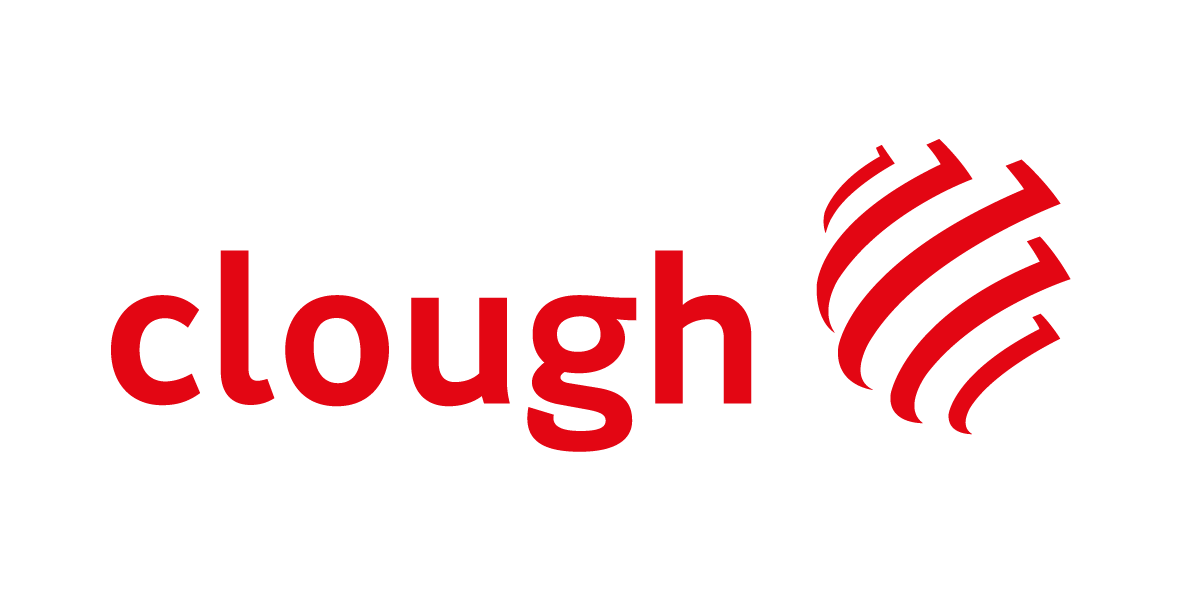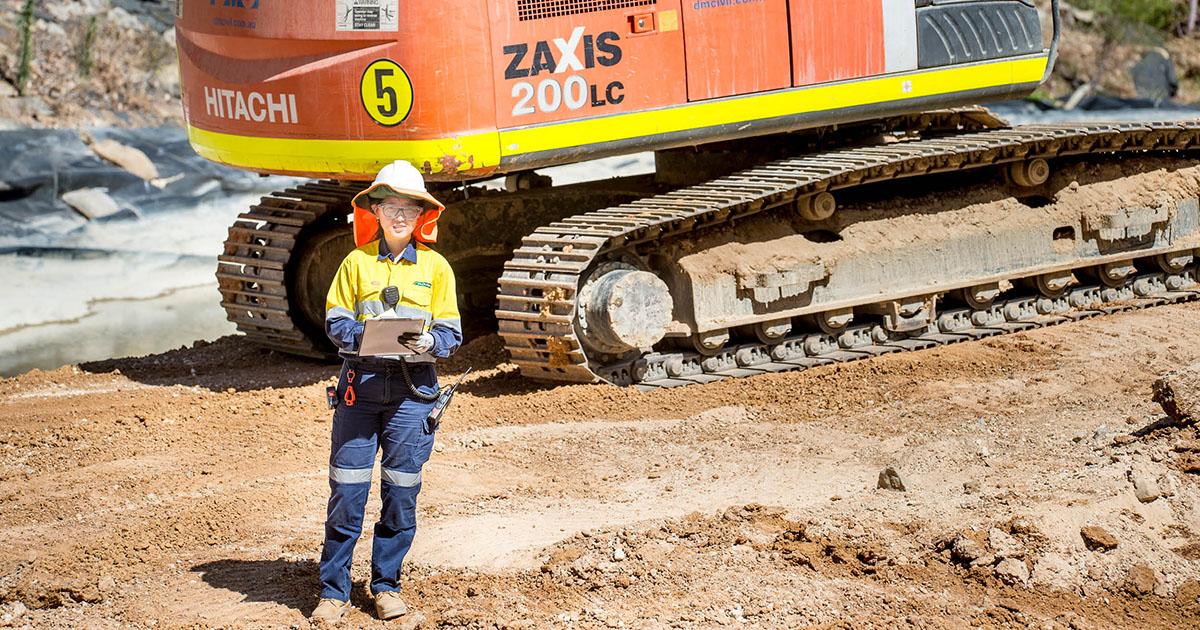The Clough Graduate program is designed to provide a challenging and rewarding career start through practical, hands-on experience in discipline and on site. Hear from some of Clough’s Graduate Program Alumni.
MEET MARK MUSULIN, MECHANICAL ENGINEER
What would you say to students that are finishing their degree and are looking to start their career?
Seek out and be open to opportunities. Engineering is an inherently diverse field and often the most rewarding experiences are the most challenging. Be sure to learn from others, but also encourage yourself to question and improve existing ways of thinking or doing, with consideration to the wider context.
What would you say to students applying for the Clough Graduate program?
Clough’s Graduate program provides a deep dive into the world of EPC project delivery. This includes firsthand experience of the project lifecycle (from engineering, construction, commissioning to operational support), the chance to travel to international offices and sites and gaining exposure to a variety of sectors including energy, mining and infrastructure. Your career development will be supported through taking on responsibility and driving project outcomes as part of a team.
If the above sounds exciting, the choice is simple; join the Clough Graduate program.
Tell us about your experience in the Clough Graduate program…
The Clough Graduate program has seen me travel to local and remote sites on projects involving dam infrastructure upgrades, greenfield mining facilities, a petrochemical plant shutdown and LNG brownfields. My involvement in these projects span across engineering, construction, commissioning and handover. Working with great people has grown my capabilities and made the journey to date enjoyable and memorable.
The combination of these factors has provided me an appreciation of what it truly takes to successfully execute challenging projects. The foundation of my career is underpinned by this firsthand exposure, which I will carry with me to my next project and many more to come in the future.
MEET EMILY BIAN, CIVIL / STRUCTURAL ENGINEER
Tell us about your graduate journey…
The graduate program provided me with a platform for different experiences including both project site experience and office-based experience. I was deployed to two projects, the Mundaring Weir Stage 2 upgrade, and Beenyup AWRP Stage 2, both projects for Water Corporation.
While I was in the office, I did maintenance support work for Gorgon project and worked on a series of tenders for the Marine team. The diversity of the graduate program makes it an interesting and valuable experience.
Tell us about where you work in Mongolia…
I work at the Rio Tinto Oyu Tolgoi (OT) project site which is located in the South Gobi Desert, Mongolia. GCR Mongolia has its headquarters located in Ulaanbaatar (UB), the Capital City of Mongolia; it usually takes about one day to fly from Perth to UB. Once you have arrived in UB, to reach the OT project site we need to catch a one-hour flight from UB to OT airport, then catch approx. 30 minute bus to the project site. That’s how remote the site is.
What do you do in your spare time in Mongolia?
It’s been winter, -15 to -20 degrees Celsius since I started on the project, so I hid in my room in my spare time. On my fatigue day I would watch some interesting shows to relax. Once it gets warm I may spend some time in the gym.
Tell us something about Mongolia that people may not be aware of…
Despite the fact Mongolia don’t have a large population, the traffic especially in UB is very very busy. Even though there’s a language barrier, Mongolian people are very friendly, genuine and humble. It seems Mongolians eat meat more often, so good for meat lovers to work or visit this country.
How did this opportunity in Mongolia come about?
Upon completion of my Engineering Graduate Program, I was given a few options to join a new project team, either Australia or Mongolia, and I chose to do FIFO to Mongolia given it’s a valuable and unique experience.
How does the Mongolian site differ to other sites you’ve worked on?
So far I only have worked in WA Metro areas and Mongolia. Heat is one of the biggest challenges for working on site in WA. However, Mongolia is completely opposite, the cold weather is challenging. The Mongolian site is enormous, it’s like a city in the middle of nowhere, given this is the first mine site I ever worked on, comparing to the other two project sites which are relatively small.
Logistics are very difficult and challenging; getting something to the Mongolian site is multiple times more difficult than Australian sites.
What has been the most valuable thing for you that you will bring back to your role in Australia from your time in Mongolia?
A. Planning. Given the remoteness of the OT site and the nature of the OT 3A project, (i.e.underground), getting materials to UG and moving them to the Workfront is considered critical and challenging. The sequencing of works and readiness of materials/tools are constantly subject to reviews and updates.
B. Leadership, most of the time we, as the expats, need to lead and drive the local team. Differently from general project engineer roles in Australia, we work like lead discipline engineers given the workload and cascade tasks to the national team members.
How are Australian engineers viewed in the international setting?
There’s usually a high expectation for Australian engineers (i.e. expat engineers) by the project team. We need to demonstrate that we can make a difference or are able to manage the team and our work.
How did the graduate program prepare you for life in Mongolia?
The project experience during the graduate program provided me the exposure to site life. I would usually work under pressure and am required to react fast to queries on site. The program also prepared me well in terms of dealing with various teams and stakeholders in the job. Especially for an international job where there’s huge diversity in the workforce, people skill is very important to deliver the job successfully.
What has been the biggest challenge in Mongolia?
Communication. For example, it sometimes would take a lot longer to explain and solve a problem due to the language barrier. Sometimes we would have to engage the translators for group discussions.
What has been the most rewarding aspect?
The most rewarding aspect would be that you see how your effort makes a difference to the community, like building a waste water treatment plant, building a jetty, and doing underground mining. You also have the opportunity to travel overseas, making friends as you move from one project to another.
What would you say to students looking to study engineering?
Engineering is a chest full of unknowns and surprises, once you open the chest, you may find things that fascinate you or scare you. If you like challenges, solving different problems, working with different people at various locations then you may enjoy your life in the future as an engineer.
What would you say to anyone considering to apply for the Graduate Program at Clough?
Clough is not just a company, it’s a community, a family that help you grow and develop. Clough acknowledge people’s contributions and would give you the opportunity to explore the field that you are interested in.
What would you say to anyone considering an international assignment?
Working on an international job isn’t just an interesting experience, it’s a commitment. You may face challenges like working away from home, working with people who don’t speak the same language as you, but after all, the international experience is a valuable piece of the puzzle that completes your work life.


